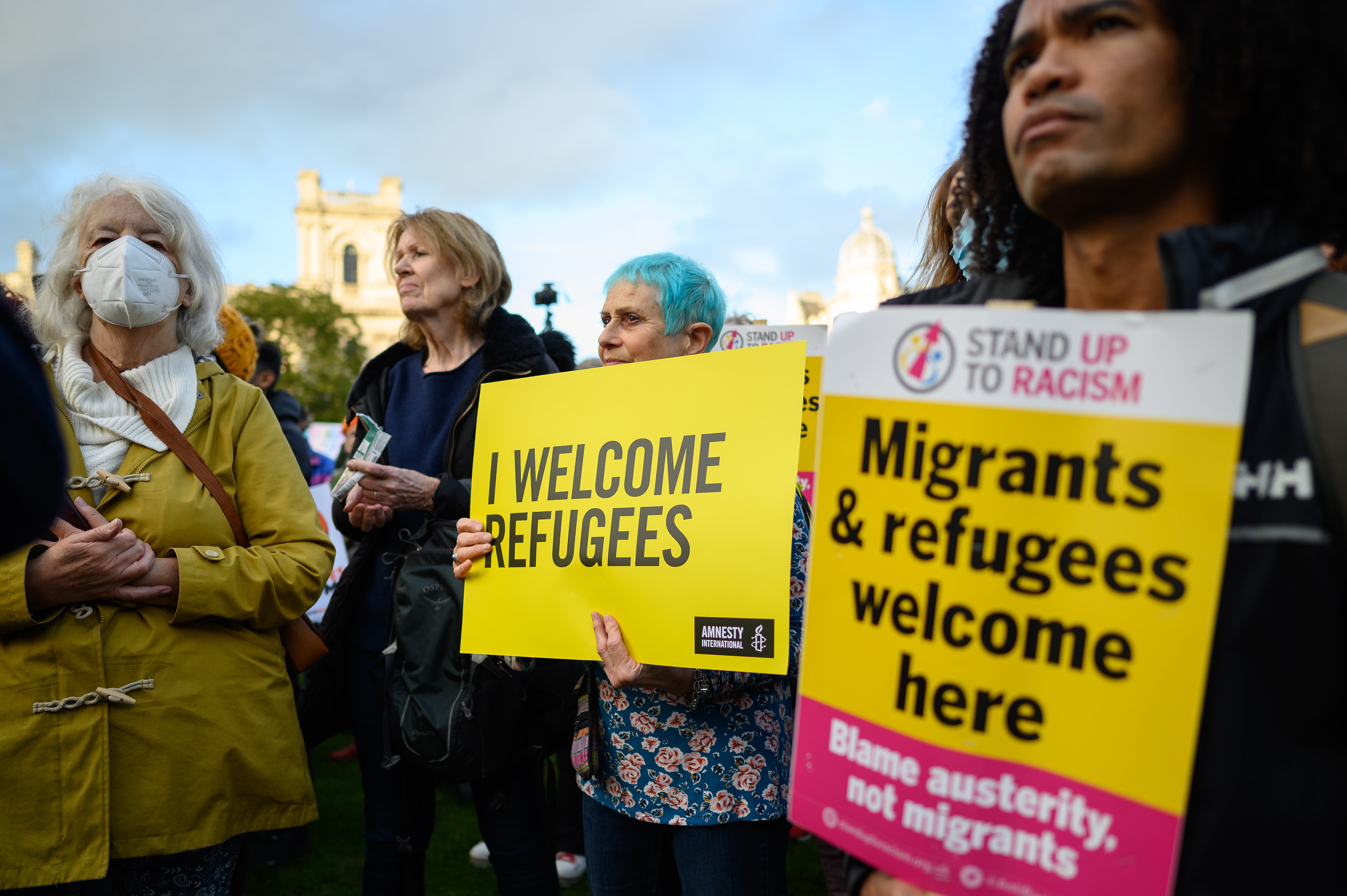The Nationality and Borders Bill is a dangerous attack on LGBT+ refugees
Instead of addressing the homophobia, biphobia and transphobia embedded in our immigration system, the government is doubling down on its failures


Your support helps us to tell the story
From reproductive rights to climate change to Big Tech, The Independent is on the ground when the story is developing. Whether it's investigating the financials of Elon Musk's pro-Trump PAC or producing our latest documentary, 'The A Word', which shines a light on the American women fighting for reproductive rights, we know how important it is to parse out the facts from the messaging.
At such a critical moment in US history, we need reporters on the ground. Your donation allows us to keep sending journalists to speak to both sides of the story.
The Independent is trusted by Americans across the entire political spectrum. And unlike many other quality news outlets, we choose not to lock Americans out of our reporting and analysis with paywalls. We believe quality journalism should be available to everyone, paid for by those who can afford it.
Your support makes all the difference.The government’s Nationality and Borders Bill represents one of the biggest attacks on the rights of refugees, migrants, and people of colour in recent memory. As ever, the worst effects of the legislation will be felt by the most vulnerable – especially LGBT+ people seeking sanctuary in the UK.
The situation was already dire for this group of people. Despite being put through inhumane “tests” to prove their sexual orientation or gender identity, LGBT+ asylum seekers routinely see their claims rejected because of a widespread “culture of disbelief” and an “impossible burden of proof”.
The Home Office gets it wrong so often that almost half of LGBT+ asylum claim refusals are successfully challenged on appeal. In many cases, this hostile culture is a matter of life and death – homosexuality remains illegal in an estimated 70 countries, 11 of which still operate the death penalty.
Instead of addressing the homophobia, biphobia and transphobia embedded in our immigration system, the government is doubling down on its failures, making it even more likely that LGBT+ people will be sent back to face violence, abuse, or even death.
Under current UK law, to be granted asylum a person must demonstrate that there is a “reasonable degree of likelihood” of persecution if they are forced to return to their country of origin. It is inherently difficult for LGBT+ asylum seekers to prove their sexual orientation or gender identity – they’ve often spent their entire lives trying to conceal it. Consequently, for many LGBT+ people, their only evidence is their own verbal testimony. The risks from reaching out to friends at home, or previous partners, for corroborating evidence can be too great.
Far from correcting this fatal “catch-22”, the Nationality and Borders Bill will increase the burden of proof required to a higher “balance of probabilities”, making what is already difficult even harder. On top of this, new measures will reduce the time allowed to provide evidence for a claim, with any that is produced after the new deadline being given less weight. The bill will also shorten the timeframe in which people can apply for asylum, penalising those who delay their claims.
For thousands, these new laws could be the difference between a successful claim and an unsuccessful one. As Rainbow Migration points out, many people do not realise they’re LGBT+ until they’ve lived here for some time, and do not immediately know that they are eligible for refugee protection; or they may simply be in the process of overcoming trauma, and unable to immediately disclose intimate details of their lives to complete strangers.
And there’s a good chance that the new measures in the bill will further discourage that. Being openly LGBT+ in the UK asylum system is already unsafe. It is a bitter and cruel irony that we incarcerate people who, in their country of origin, face prison sentences for their identity and sexuality. LGBT+ people already face disproportionate levels of abuse in asylum centres. Government proposals to expand the detention of those making asylum claims will only make that worse.
To keep up to speed with all the latest opinions and comment, sign up to our free weekly Voices Dispatches newsletter by clicking here
The same goes for new rules on so-called “Group 1” and “Group 2” refugees. The division – which the UN says undermines the provisions of the 1951 Refugee Convention – will grant a lesser, temporary status to some asylum seekers, forcing them to attend regular assessments. Not only will this subject people to immense stress and anxiety, but it could also force LGBT+ refugees to continue to hide their identity for fear that living openly in the UK could increase their risk of persecution if they are sent back.
The government can’t feign ignorance of these issues. Its own equality impact assessment of the bill admitted that it risked “indirectly disadvantag[ing] protected groups” including LGBT+ people. Six days after it was published, I questioned ministers specifically on the new burden-of-proof requirements in the legislation. Rainbow Migration – an organisation fighting for LGBT+ people in the UK immigration system – have been sounding the alarm, sharing testimonies of the many LGBT+ people who would have had their claims rejected under these new laws.
Rather than re-traumatising LGBT+ people fleeing violence and abuse, we need an asylum system that supports them – and all people fleeing from persecution, war, and the worst effects of the climate emergency. That’s why on Wednesday I’ll be holding a debate in parliament to put this issue firmly on the agenda. I’m inviting every MP, from every party, to participate. Together, I hope we can shine an urgent light on this dangerous attack on the global LGBT+ community – and organise to prevent it.
Olivia Blake is the Labour MP for Sheffield Hallam
Join our commenting forum
Join thought-provoking conversations, follow other Independent readers and see their replies
Comments